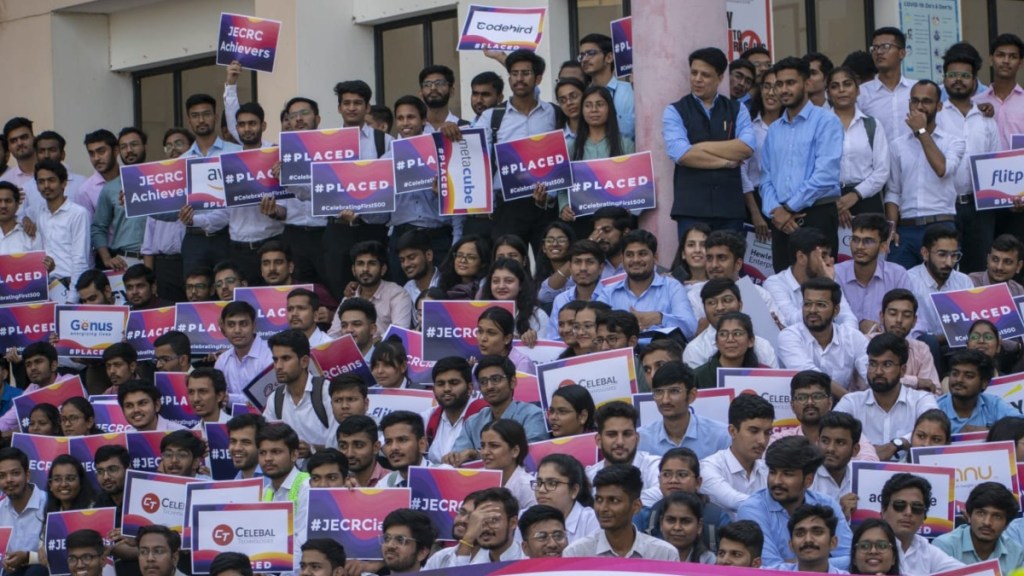JECRC University’s 2025 placement season has seen a milestone: female students accounted for 35% of all job offers, a figure that stands out both within the institution and in the context of broader national trends. This report explores the factors behind this development, drawing on interviews with university officials, placement coordinators and students, as well as recent national data on campus recruitment and gender diversity.
Placement outcomes and key figures
In the current academic year, JECRC University placed over 2,230 students, with the highest salary package reaching Rs 33 lakh per annum. Notably, 876 students received offers above Rs 7 lakh per annum and a substantial proportion of these high-value offers went to female students across technical, management, and commerce streams. Major recruiters included TCS, Accenture, Capgemini, LTI Mindtree, Deloitte, Wipro and KPMG, according to a report shared by the institution.
These outcomes are consistent with findings from the India Skills Report 2025, which highlights an upward trend in female employability, particularly in STEM and business roles. The All India Survey on Higher Education (AISHE) 2024 also notes that female enrollment in engineering and technology has risen to 32%, supporting the observed increase in placement rates for women.
Institutional strategies and student preparation
University officials attribute this progress to a combination of inclusive policies, targeted training, and industry partnerships. Dean of Placements, JECRC University, emphasises the role of the Campus Recruitment Training (CRT) program, which provides over 300 hours of skill-building in coding, aptitude, logical reasoning, communication, and interview techniques.
The university also claims to have collaborated with platforms such as PrepInsta, HackerRank, CoCubes, and TCS iON to ensure training aligns with current industry requirements.
Students, particularly women, have benefitted from these initiatives. Many began the program with limited confidence but emerged with practical skills and a strong sense of readiness for corporate roles.
The university’s focus on real-world exposure—through project-based learning and certifications from AWS, ServiceNow, and Google Cloud—has further enhanced employability. Each year, more than 450 students participate in the ServiceNow program, and cloud computing curricula are integrated into B.Tech CSE, BCA, and MCA programs.
National and industry context
JECRC’s progress mirrors broader shifts in the Indian higher education landscape. The India Skills Report 2025 notes that women now make up 36% of new hires in IT and consulting, up from previous years. This growth is attributed to targeted skill development, increased industry-academia collaboration, and a greater emphasis on diversity by leading employers.
The university’s placement model has received recognition at several national forums in 2025, including HR Success Talk (Delhi), the International Business Conference (Bengaluru), and SHRM TECH 2.0 (Mumbai), where its AI-enabled placement training framework was showcased. These recognitions underscore the effectiveness of JECRC’s approach to employability and workplace readiness.
Cultural and academic shifts
Beyond the numbers, JECRC asserts a cultural shift on campus. More women are enrolling in fields such as computer science, mechanical engineering, data analytics, and finance—areas traditionally dominated by men.
According to the World Economic Forum’s Global Gender Gap Report 2024, India has made incremental progress in bridging the gender gap in professional and technical roles, a trend reflected in JECRC’s placement outcomes.
For many female students, securing a job offer represents not just employment, but empowerment—often marking the first time someone in their family has entered the corporate workforce. University leaders stress that the goal is to build on this momentum, increasing female participation not only in placements but also in internships, research, and leadership roles.
